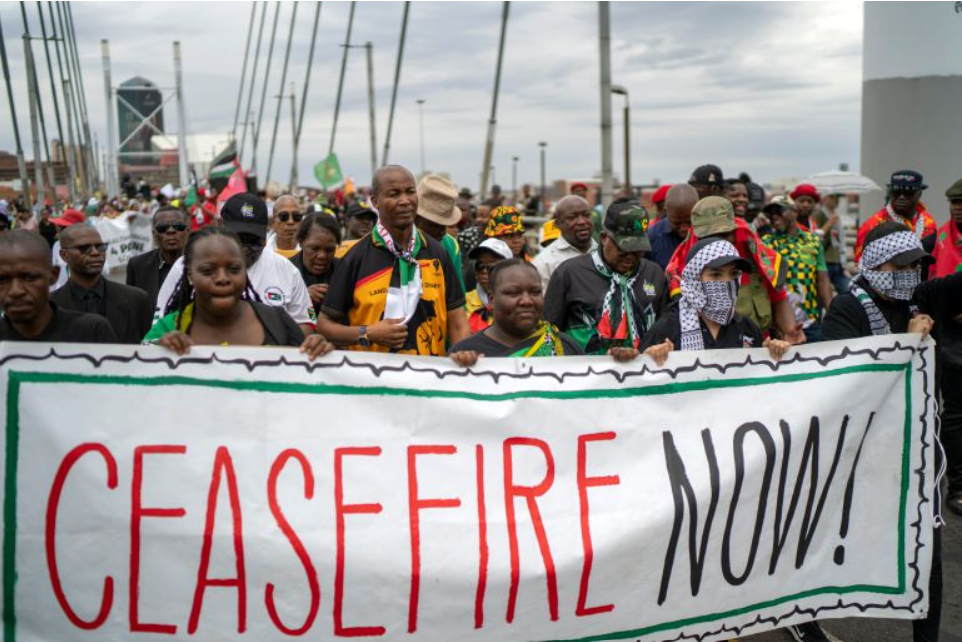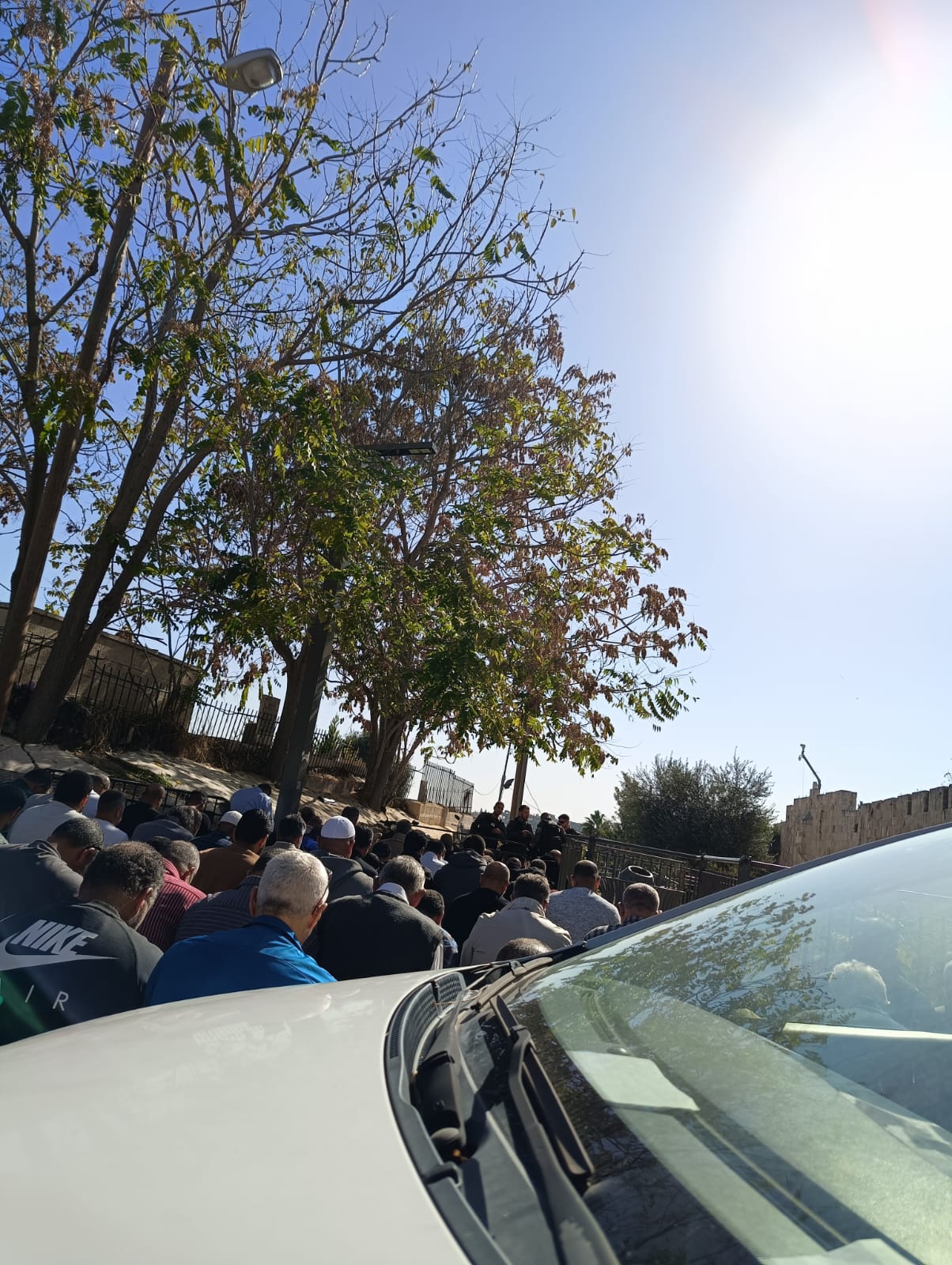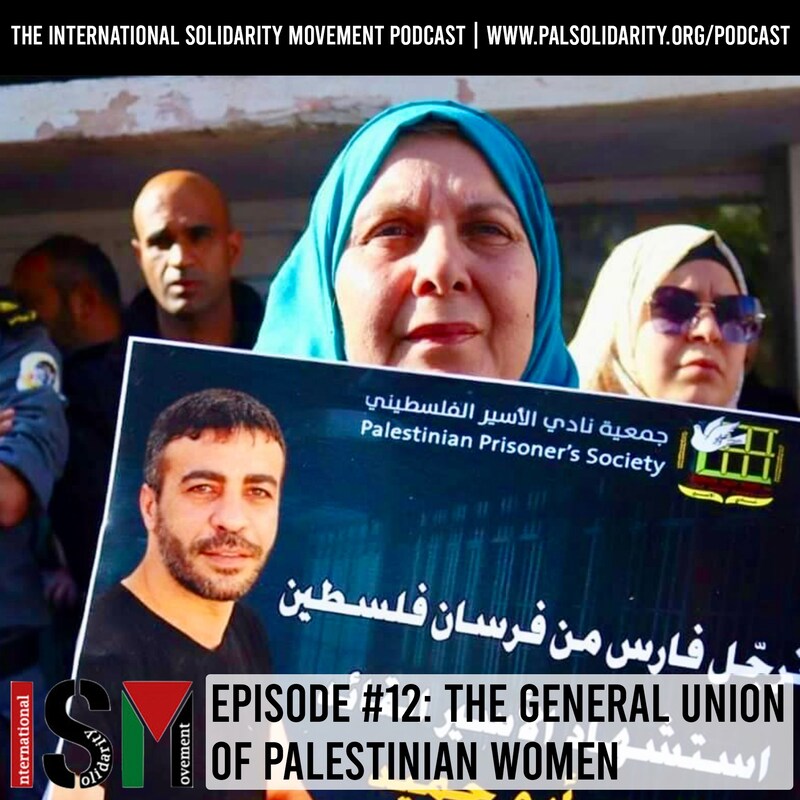-
Solidarity Worldwide: actions, protests and initiatives for Palestine around the globe
As the Israeli army continues its genocidal war on Gaza, and as the Israeli occupation forces and settler militias carry out ethnic cleansing in the West Bank and East Jerusalem, people around the world are taking to the streets, engaging in direct actions and BDS (Boycott, Divest, Sanction) and pressuring their governments to enforce an […]
-
A Prayer Against An Army
Palestinians: men, women, youth, and elders, walk miles attempting to reach Al Aqsa Mosque, trying every gate. Each path is blocked by Israeli guns and barricades.
-
ISM Podcast Episode 12: The General Union of Palestinian Women
ISM Podcast 12: The General Union of Palestinian Women TRANSCRIPT: Hey, welcome to the International Solidarity Movement podcast. يلا اهلاً وسهلاً بكم في حلقة حركة التضامن الدولية، فلسطين [This transcript has been edited for clarity] Welcome to the ISM podcast. In this episode, we interview Nada Tweir from the General Union of Palestinian Women in […]
Action Alert An Nabi Saleh Apartheid Wall Arrests BDS Bethlehem Bil'in Cast Lead Demonstration Denial of Entry Ethnic Cleansing Farmers Gaza Global Actions Hebron House Demolition International law Israeli Army Jerusalem Live Ammunition Nablus Ni'lin Prisoner Ramallah Rubber-coated steel bullets Settlement Settlers Settler violence Tear-Gas Canister Video



